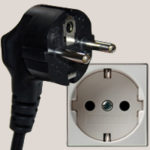Know before you go
Russia
General Information
Russia is the largest country in the world by area, covering more than one-eighth of the Earth’s inhabited land area. About 77% of the population live in the western, European part of the country. Russia across the entirety of Northern Asia and much of Eastern Europe bordering Norway, Finland, Estonia, Latvia, Lithuania, Poland, Belarus, Ukraine, Georgia, Azerbaijan, Kazakhstan, China, Mongolia and North Korea. Its capital and largest city is Moscow. They drive on the right side of the road.
Visa
Holders of a EU passport have to apply for a Visa. For holders of a different passport check out this link to see if you are required to apply for a visa or not. In addition to your passport and the visa application you need an invitation letter, an insurance certificate and an ID picture. Please contact your local Russian Embassy for more information.
Watch Geography Now!
The video will give you a good first overview of Russia.

Power
Russia uses Type C and F („Schuko“) plug outlets. They also work with Type E. The voltage is 220 Volt and the frequency is 50 Hz
Language
No surprise, the official language of Russia is Russian. English is not always spoken. If you don’t speak Russian, take a pictogram book with you to ease communication. Also get yourself a camera translator app on your phone as Russia uses the Cyrillic alphabet. This way you will just have to take a picture of the text and the app will translate it for you.
| Russian | English |
|---|---|
| Privet! | Hello! |
| Poka! | Bye! |
| da | yes |
| net | no |
| Spasibo! | Thank you! |
| Pozhaluysta! | You're welcome! |
| Izvinite! | Excuse me! |
| Na zdorovie! | Cheers! |
Weather Forecast
Climate
The enormous size of Russia and the remoteness of many areas from the sea result in the dominance of the humid continental climate, which is prevalent in all parts of the country except for the tundra and the extreme southwest. Mountains in the south obstruct the flow of warm air masses from the Indian Ocean, while the plain of the west and north makes the country open to Arctic and Atlantic influences.
Average Temperature in Moscow
Average Precipitation in Moscow
Transportation
How to get there?
The biggest airports of Russia can be found in Moscow. Moscow has 4 airports in total: Domodedovo International Airport (DME), Sheremetyevo International Airport (SVO), Vnukovo International Airport (VKO) and Zhukovsky International Airport (ZIA) with Sheremetyevo and Domodedovo being the largest ones. It is easy to get to the city center using public transport. Follow the respective link to find out how to get to the airport: Domodedovo, Sheremetyevo, Vnukovo, Zhukovsky. Depending on your travel route around Russia you should also consider flying in and out of Russia using two different airports e.g. arrive at Moscow and leave from St. Petersburg’s Pulkovo Airport (LED).
Of course it is also possible to travel to Russia by bus or train from neighboring countries.
How to get around?
Moscow is huge. It is the biggest city in Europe. While in other cities you might walk between Metro stations, in Moscow this is usually too far. The Metro will take you all over the city. Trains are really fast – the fastest Metro I’ve personally ever used. Make sure to hold on tight 😉 It’s not only the fastest, but also the most beautiful Metro I’ve ever used. Many stations are beautifully decorated.
Other Russian cities with a Metro system are: Kazan, Nizhny Novgorod, Novosibirsk, Saint Petersburg, Samara and Yekaterinburg.
How to get from town to town?
One of the most famous train routes of the world is the Trans-Siberian Railway connecting Europe to Asia. There is of course also a regular train network in Russia. Note that the highspeed trains are called Sapsan. They can go as fast as 250 km/h and take you from Moscow to St. Petersburg in 3:40h, compared to over 7 hours using a regular train. It is also important to know that in Russia you have to show your train ticket before you get on the train. Ticket inspectors will be waiting in front of the trains doors and check your ticket. Have it ready.
Money, Money, Money
Currency
The currency of Russia is the Ruble. Check out the currency converter to find out about current exchange rates.

Accommodation
Depending on where you are staying prices will vary of course. Using Airbnb, we paid an average of around 26€ per person per night for Moscow and St. Petersburg.
Cash
Upon entering Russia, you will have to withdraw Ruble at an ATM. Cash is king, and you will need it everywhere from restaurants to markets and public transport. How much will you need of course depends on your spending habits. Retrospective I found I needed around 42€ per day. This includes food, transportation, activities and souvenirs.


